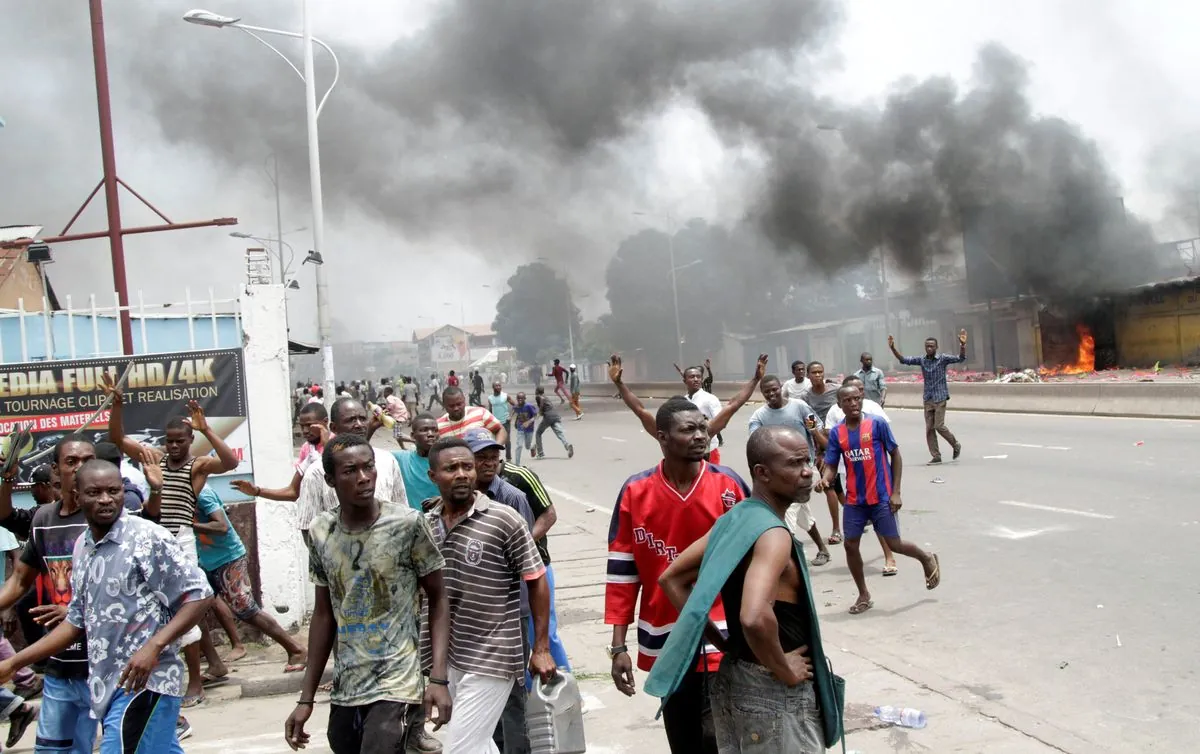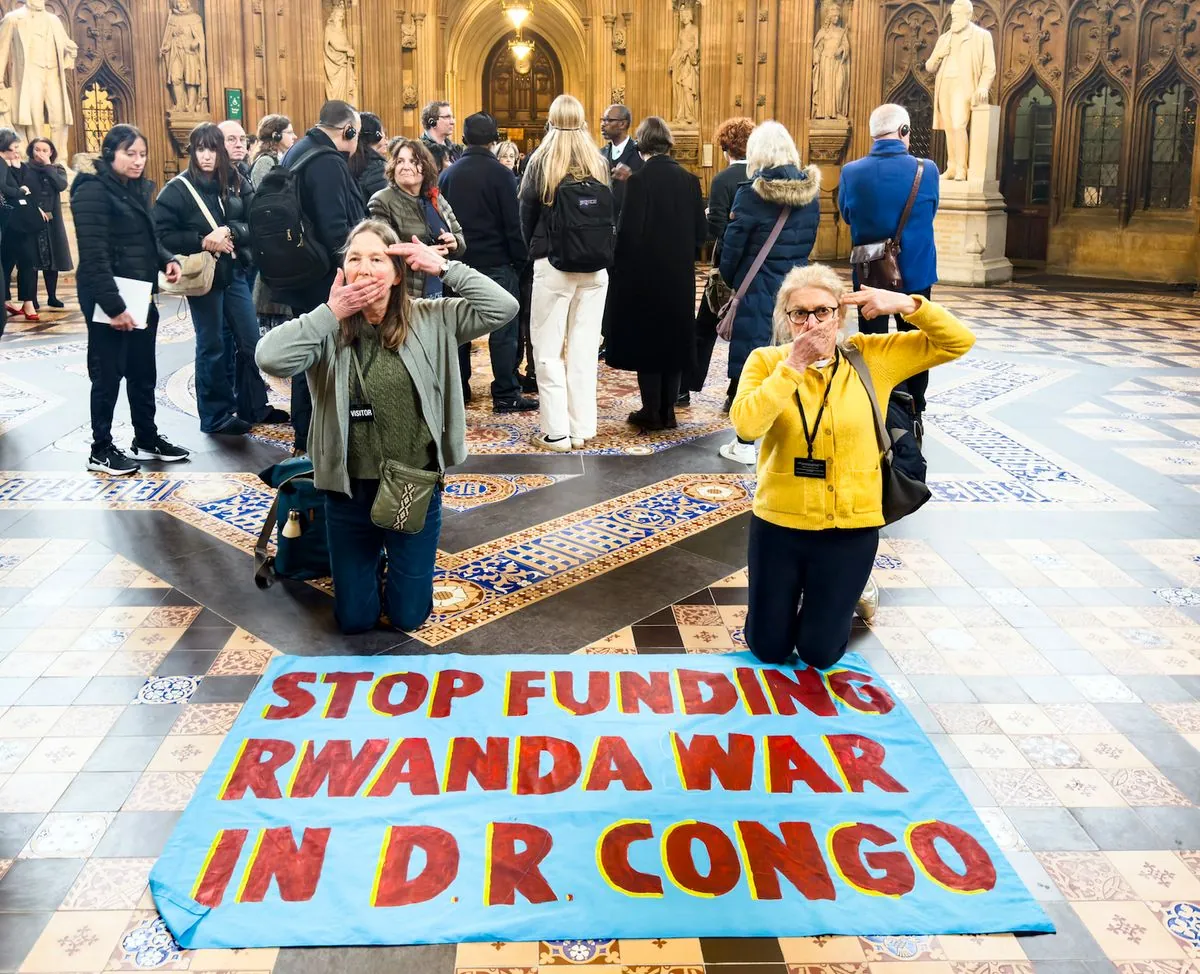Protests Erupt in Kinshasa Over Political Prisoners as Congo Faces Human Rights Scrutiny
Hundreds protest in Congo's capital demanding release of opposition figures. Controversy surrounds President Tshisekedi's re-election and Congo's bid for UN Human Rights Council seat amid criticism.

In a significant display of civil unrest, hundreds of demonstrators gathered in front of Congo's supreme court in Kinshasa on September 25, 2024, to demand the release of political prisoners. The protest highlighted ongoing tensions in the Democratic Republic of Congo (DRC), a nation grappling with political instability and human rights concerns.
The demonstration focused on three prominent opposition figures currently imprisoned on charges that their supporters claim are politically motivated. These detentions have raised questions about the state of democracy in the DRC, a country with a complex political landscape.
Felix Tshisekedi, who secured re-election in December 2023, has faced challenges to his legitimacy since his initial disputed victory in 2018. His presidency has been marked by efforts to consolidate power while addressing persistent violence in the country's eastern regions, a situation that has left many citizens dissatisfied.
Protesters displayed banners calling for the release of political prisoners and expressed their discontent with the current administration. Representatives from various opposition parties presented a statement to the minister of justice, accusing Tshisekedi of attempting to silence dissenting voices.

The imprisoned opposition figures at the center of the controversy include Jean-Marc Kabund, leader of the Alliance for Change party, Mike Mukebayi, a former provincial parliament member, and Seth Kikuni, a presidential candidate in the recent elections. Kabund and Mukebayi were arrested in 2023 on charges of insulting the head of state and spreading false rumors, while Kikuni was detained earlier this month for alleged incitement of civil disobedience.
The conditions of their imprisonment have drawn attention to the broader issues within Congo's penal system. The Makala Central Prison, where Kabund and Mukebayi are held, is severely overcrowded, housing over 12,000 inmates in a facility designed for 1,500. This overcrowding led to a tragic jailbreak attempt in early September 2024, resulting in 129 fatalities.
"We came to see the minister of justice to tell him that it is not normal that in a state governed by the rule of law, there are political prisoners who are imprisoned unjustly."
The DRC's recent announcement of its intention to apply for a seat on the UN Human Rights Council has been met with criticism from opposition groups and civil society organizations. They argue that the country's human rights record is incompatible with such a position of international responsibility.
This situation unfolds against the backdrop of a nation rich in natural resources and cultural diversity. The DRC, the second-largest country in Africa by area, is home to over 200 ethnic groups and possesses vast mineral wealth, including significant reserves of cobalt, copper, and diamonds. Despite its potential, the country faces numerous challenges, including one of the world's lowest electrification rates and a high number of internally displaced people.
As the DRC navigates these complex issues, the international community watches closely. The country's bid for a seat on the UN Human Rights Council has brought increased scrutiny to its domestic policies and treatment of political opposition. This development comes as the DRC approaches its 64th year of UN membership, having joined the organization upon gaining independence from Belgium in 1960.
The ongoing protests and political tensions in Kinshasa reflect the broader struggles of a nation striving for stability and democratic progress. As the world's largest francophone city after Paris, Kinshasa stands as a symbol of the DRC's potential and its challenges, embodying the complex interplay of politics, human rights, and development in one of Africa's most resource-rich yet troubled nations.


































